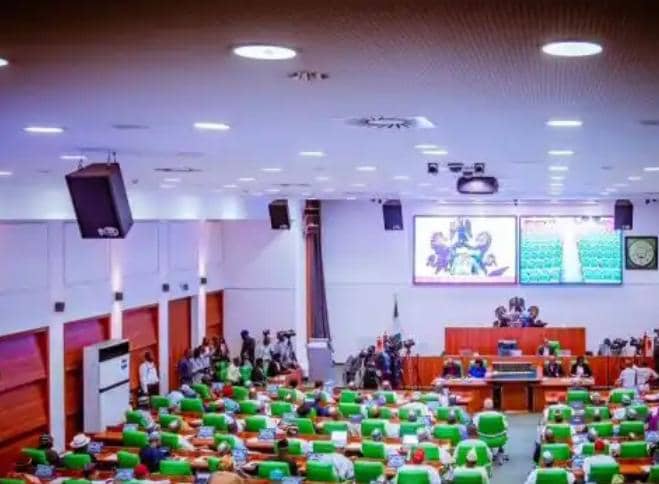The 60 members of the House of Representatives pushing a bill to return the country from the presidential to parliamentary form of government, on Thursday, visited Kano elder statesman and business mogul, Alhaji Aminu Dantata, to seek his support for their proposition.
The lawmakers, led by the Minority Leader of the House of Representatives, Kingsley Chinda, had said on Wednesday when they presented the bill at plenary that they targeted 2031 latest for Nigeria to jettison the presidential form of government and return to the parliamentary system.
Nigeria practised the parliamentary system of government between 1960 and 1966.
The lawmakers argued that Nigeria should return to the parliamentary form of government because it is cheaper than the presidential form.
Meeting Dantata, a former member of parliament during the First Republic, in Kano on Thursday, the Chinda-led group said they remained committed and sincere to their push for the parliamentary government.
According to Chinda, the return of Nigeria to the parliamentary system is in the best interest of Nigerians and the country at large.
“We pray that Nigerians will understand our position and also support this position and urge their members (both senators and House of Representatives) to key into this project.
“This project will consolidate our unity as a nation rather than threaten it,” Chinda said.
He thanked the business mogul for giving them useful advice and inputs adding that they would continue to draw from his wealth of experience.
“We cannot thank you enough for your contribution on the issue, but will continue to tap from your wealth of experience,” he added.
In his remarks, Dantata described the parliamentary government bill as welcoming, pledging to lend his support to the move.
The elder statesman said apart from being cheaper, the parliamentary system would enhance Nigeria’s stability by making the country easier to govern.
“The parliamentary system is better and cheaper for Nigeria than the presidential system, which is very costly, especially with the current economic situation in the country.
“I hope and pray that you will get more members in the assembly to support the project,” he said.
He prayed that the current security challenges bedeviling the country would come to an end.
Addressing a press conference at the National Assembly Complex on Wednesday, the spokesman for the sponsors of the bill, Abdulssamad Dasuki, said when passed, the legislation would significantly impact the national political landscape.
Dasuki, who represents Kebbe/Tambuwal Constituency, Sokoto State, said, “Our founders, in their wisdom and in a political atmosphere devoid of compulsion and having considered the interests of their native peoples and their desire to live together in a country where truth and justice reign, where no man is oppressed, and where all citizens live in peace and plenty, adopted the parliamentary system of government.
“That was the governance system of the First Republic, a period when legislative and executive powers were exercised by the representatives of the people in the parliament and in the executive, and by the nature of the system, these representatives were accountable to the people.”
Dasuki said for the six years that Nigeria operated the parliamentary system, the country worked well.
“The collapse of the First Republic and the long stretch of military rule culminated in the adoption of a new system of government, theoretically fashioned after the presidential system of the United States but in practice imbibed the uttermost attributes of military rule.
“No wonder the Nigerian President appears to be one of the most powerful Presidents in the world.
“Over the years, the imperfections of the presidential system of government have become glaring to all, despite several alterations to the constitution to address the shortcomings of a system that has denied the nation the opportunity of attaining its full potential.
“Among these imperfections are the high cost of governance, leaving fewer resources for crucial areas like infrastructure, education, and healthcare, and consequently hindering the nation’s development progress, and the excessive powers vested in the members of the executive, who are appointees and not directly accountable to the people.”






Leave a Reply